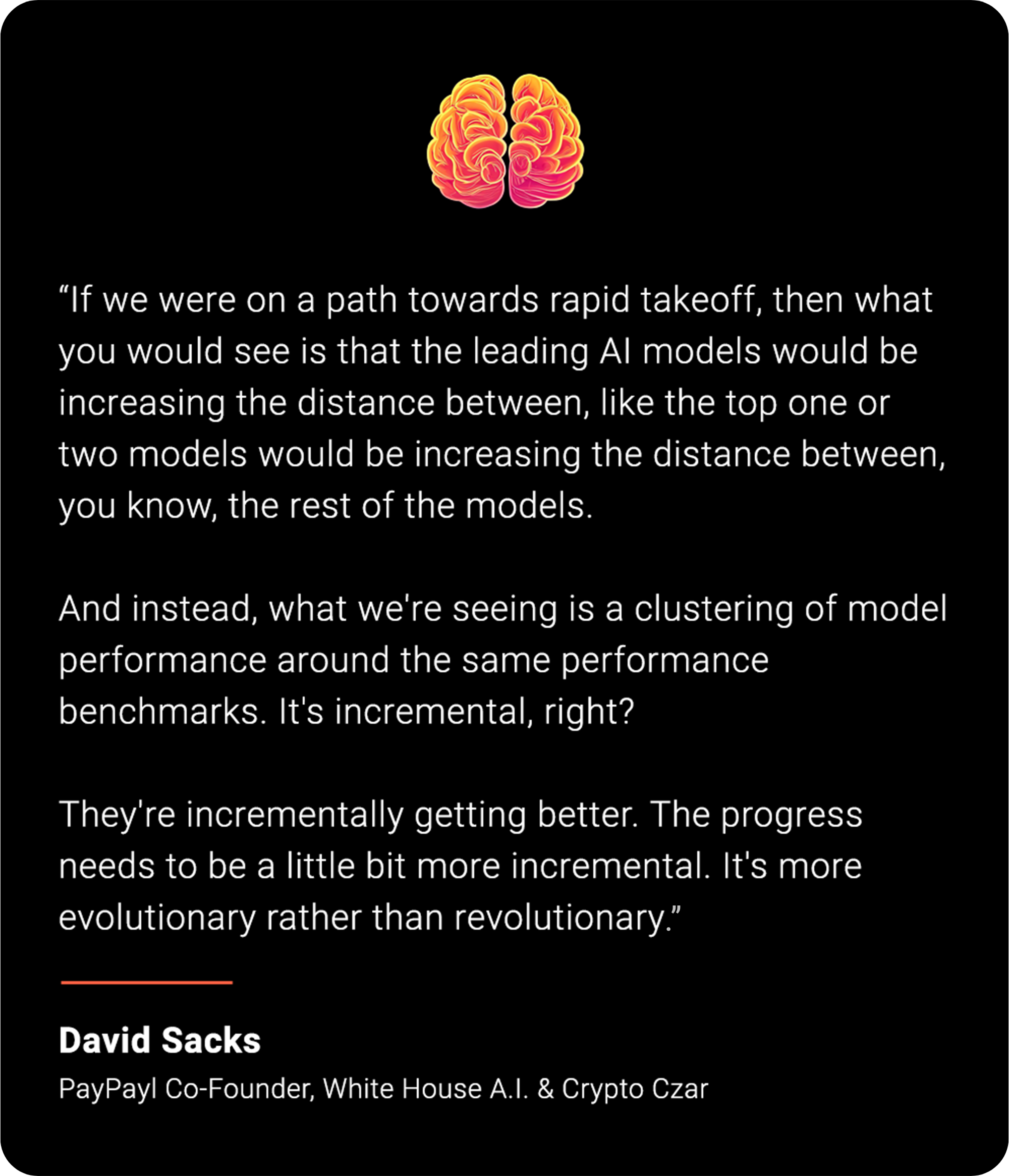Monday Memo

A Byte of Knowledge
Your potential customers don't trust you.
He sees you as just another salesman. Another voice in the noise.
And his guard is way, way up.
Why?
Because he’s been burned his whole life by slick marketers and faceless institutions. They promise the moon and deliver dirt.
The average marketer’s response? More hype. Louder promises.
Wrong move.
You don’t have to be another attacker trying to get past his defenses.
Instead, become his ally. His advocate.
Think of the market guru who doesn’t just recommend a stock… but relentlessly exposes the hidden fees Wall Street hopes you’ll never see.
He’s not selling. He’s defending.
He’s fighting the very people your customer already hates.
That simple shift changes everything.
It flips you from “seller” to “ally.”
And the person who trusts you is the person who buys from you.
🚀 Whether you're selling a $50 supplements or a $10,000 coaching program – having these 5 'Copy Blocks' on your landing page could be the difference between crickets and an avalanche of cash flow.
Discover All 5 'Copy Blocks' Now
Something to Ponder

We Asked – AI Answered
Our Question:
"What are three strategic principles that allow you to model industry leaders while maintaining innovation and competitive advantage, rather than simply copying their approaches?"
AI's Answer:
🧬 Principle #1: Extract the DNA, Not the Body
When Howard Schultz visited Italy in 1983, he didn't copy Italian coffee shops—he extracted the principle. The "third place" concept (not home, not work). Then he Americanized it: larger sizes, more sugar, WiFi. Result? A $100+ billion company that looks nothing like an Italian espresso bar.
The Southwest Secret: While everyone copied hub-and-spoke models, Herb Kelleher asked: "What job are we being hired to do?" Answer: "Compete with driving and buses." This reframe created their entire low-cost model.
💡 Quick Win: Study what leaders explicitly DON'T do. IKEA's flat-pack furniture started as a shipping constraint—now it's their moat. Amazon chose not to be profitable for 20 years. Apple doesn't compete on specs.
🔄 Principle #2: The Arbitrage of Context
Ray Kroc saw the McDonald brothers' operation and realized something everyone missed: he didn't franchise restaurants, he arbitraged real estate models from shopping centers. McDonald's makes more money from real estate than burgers.
The Pattern Nobody Talks About:
- Netflix → Took gym membership psychology, applied it to entertainment
- Dollar Shave Club → Took Costco's bulk-buying, applied it to razors
- Warby Parker → Merged Zappos' try-before-you-buy + Zara's vertical integration + Tom's social mission
- Spotify → Applied radio's ad-supported model to on-demand music
Each took a proven model from one context and applied it where it didn't exist.
The magic happens at intersection points. Airbnb didn't invent hospitality or peer-to-peer—they just married Craigslist's model with hotel industry standards. Now worth $75 billion.
🎲 The Cheat Code: Find industries with similar customer psychology but different products. Subscription works when usage is variable but commitment is consistent (gyms → streaming → razors → pet food → vitamins → art supplies).

⚡ Principle #3: The Speed Differential
Large companies are structurally incapable of certain innovations. This isn't a bug - it's your feature.
Blockbuster couldn't become Netflix. Not stupidity - structure:
• Real estate contracts locked them in
• 40% of revenue from late fees
• Supplier agreements required inventory
• Wall Street demanded quarterly returns
Tesla's Playbook:
Started with a $100k Roadster for Silicon Valley executives—a market too small for Detroit to care about. By the time they moved mainstream:
✅ Supercharger network (impossible for dealers to coordinate)
✅ Direct sales (illegal for traditional manufacturers)
✅ Over-the-air updates (organizational impossibility for OEMs)
✅ No model years (heresy to traditional auto)
Kahneman's Gift: People feel losses twice as powerfully as gains. Giants can't risk cannibalizing existing products. You can. That's why Instagram could kill Kodak, WhatsApp could disrupt telecom, and Robinhood could challenge Charles Schwab.
🎬 The Bottom Line:
Stop playing chess when giants are playing checkers on a board they built.
The three principles compound:
- Extract principles, not tactics (DNA)
- Apply them in new contexts (Arbitrage)
- Move where they structurally can't (Speed)
Sam Walton said: "Most everything I've done I've copied from someone else." But he didn't copy Kmart—he copied their principles and applied them to rural markets they ignored.
The Meta-Principle: Industry leaders succeed within constraints that become their prison. Your advantage isn't being better at their game, it's playing a different game with their best moves.
Thanks for reading the Monday Memo.
Until next time!
The AI Marketers
P.S. Help shape the future of this newsletter – take a short 2-minute survey so we can deliver even better AI marketing insights, prompts, and tools.
[Take Survey Here]

